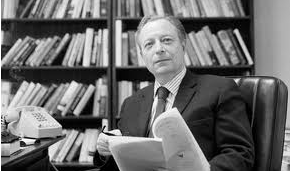In California, we are facing our highest unemployment rates since World War II, and searching widely for the correct “jobs strategies”—spend more on the state level, spend less, cut environmental regulations, cut payroll taxes, add hiring tax credits, green economy, technology economy.
To get perspective on our next steps we might turn back to the Fall of 1970, when the state unemployment rate was rising, and the free market system itself was under attack in our state. An influential essay of the time and the subsequent turnaround of the state economy are instructive.
Throughout the late 1960s, California unemployment remained low, as the state economy was fueled by rising defense and aerospace spending. Between September 1967 and December 1969, the California unemployment rate was consistently under 5%, and California payroll jobs increased by nearly 600,000 jobs, from 6,429,000 jobs to 7,027,000 jobs. In 1970, though, California unemployment began to rise rapidly. By September 1970, unemployment was up to 8.3%, to reach over 9% by the end of 1970.
Further, throughout 1970, California was rocked by protests not only against the Vietnam War, but against the nation’s economic structure. The burning of the Isla Vista Bank of America branch in Santa Barbara in spring 1970 was as much against this symbol of the capitalism in California as against Vietnam.
 It was in Fall 1970, that the journal The Public Interest published an issue devoted to the future of capitalism, and containing an essay by Irving Kristol on the moral basis of capitalism. The essay, “When virtue loses all her loveliness—some reflections on capitalism and the free society”, takes its title from a passage in George Fitzhugh’s Sociology for the South, an attack on the industrial North in the pre-Civil War period:
It was in Fall 1970, that the journal The Public Interest published an issue devoted to the future of capitalism, and containing an essay by Irving Kristol on the moral basis of capitalism. The essay, “When virtue loses all her loveliness—some reflections on capitalism and the free society”, takes its title from a passage in George Fitzhugh’s Sociology for the South, an attack on the industrial North in the pre-Civil War period:
“ In a free society none but the selfish virtues are in repute, because none other help a man in the race of competition. In such a society virtue loses all her loveliness, because of her selfish aims.”
In Kristol’s view, just as men and women cannot tolerate a sense of meaningless in their individual lives, so they cannot accept an economic structure in which “power, privilege and property are not distributed according to some morally meaningful criteria.” Kristol argues that over the 20th century the legitimacy of capitalism has been undermined as its rationales in America (Protestant Ethic, Darwinian Ethic, Technocratic Ethic) have lost force. A new moral basis was needed, most likely in “some combination of the reforming spirit with the conservative ideal”, found in the writings of conservative reformers Matthew Arnold and Herbert Croly. Croly, a co-founder of The New Republic in the early twentieth century argued for an economy guided by a strong national government, working with large corporate entities and labor unions.
The essay was highly influential at the time, and in the years since continues to be read and referenced. Yet, if anything, it is instructive as its analysis is wrong—wrong about economic growth and wrong about the moral basis of the market system. In California, the economy took off again in the mid- 1970s, creating nearly 2 million payroll jobs between 1975 and 1982, and over 7.5 million payroll jobs between 1975 and 2007.
More generally , capitalism in the decades after 1970 emerged triumphant, as a system and ideology; and its main opponents, Communism and Socialism, discredited. Capitalism
In both cases, the success of the California economy and the legitimacy of capitalism nationwide and worldwide, came about for the same factors not foreseen by Kristol or most others in 1970: the rise of entrepeneurship, the unlocking of individual skills and drive rather than national government/corporation/union direction, the expansion of homeownership and other asset ownership to the middle classes and beyond, the reduction in individual tax rates from confiscatory levels.
Today, none of us in California know with any certainty where our economy is headed. We cannot say what will be the full impacts in the next decade of globalization, the European economic meltdowns, or the relenteless forces of technology.
Yet, in Sacramento as we sort through the list of job creation strategies it makes sense to hold firm to economic virtues that saved us in 1970.

